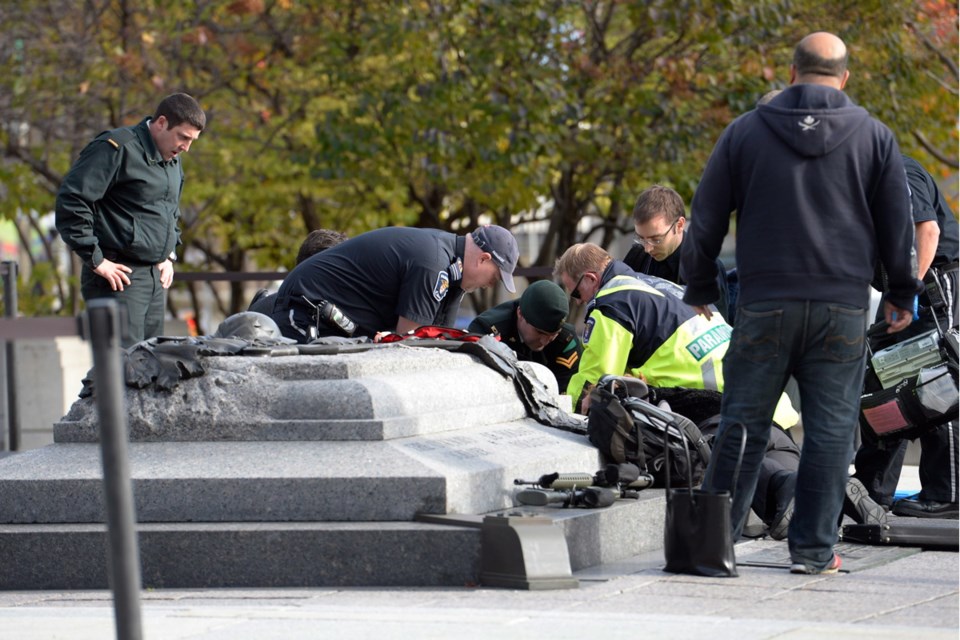Canada must be proactive in fighting homegrown radicalism following the deaths of two soldiers this week, says a professor who studies recruitment of terrorists.
Lorne L. Dawson, a University of Waterloo professor, is urging Canada to devote more resources to combating radicalism in this country, in the wake of the death of a soldier at the National War Memorial and another killed in Quebec in a hit-and-run by a man described as having jihadist sympathies.
Establish prevention programs “instead of just endlessly talking about it,” said Dawson. “Let’s also figure out a way that if people are going to return from Syria, it isn’t good enough just to monitor them and lock them up. We really need some kind of de-radicalization program.”
Canadian Security Intelligence Service is knowledgeable but is operating with a small budget compared with other security agencies in the world, he said.
Just last week, he warned in media interviews on potential jihadist action that it was just a matter of time before something happened in Canada, but never anticipated it happening so quickly.
The number of Canadians supporting the Islamic State (ISIS) terrorist group as foreign fighters is small, but it’s a more significant problem than most realize, he said.
In the last week or so, ISIS has been discouraging foreign fighters from travelling to fight in Syria at the same time countries such as Canada are blocking such travel, Dawson said.
“[ISIS] have been telling people, ‘Do something there. Do something at home. Do an attack in your own country.’ And then since Canada committed forces to the allied offensive against ISIS, ISIS has even more specifically said: ‘Do something against Canadians.’ ”
If someone’s passport is seized to prevent travel, that may give them a new grievance, he said. Dawson suspects that may have been the case with the perpetrator of Monday’s attack, Martin Courture-Rouleau, who he believes was acting as a lone terrorist and likely dealing with psychological issues. Courture-Rouleau was shot and killed by police as he fled the scene.
As for Wednesday’s attacks at the war memorial and on Parliament Hill, Canadians might be shocked but this is a strong, resilient nation, said Kenneth Christie, a Royal Roads University professor specializing in security, in an email from Thailand. “I doubt if this will intimidate most people.”
Scott Watson, a University of Victoria associate professor studying security threats, noted that the federal government recently tabled potentially contentious legislation on keeping track of people in Canada who might be a threat.
“I suspect after today it will not be contentious at all. It will likely get through quite quickly and without question,” said Watson, adding it’s time to scrutinize Canada’s preparedness for violent attacks.
“This type of violence does require critical attention to our own domestic and international policies.
“We need to be aware that we are in really uncertain times, globally and domestically. You almost get the sense that this is going back to earlier eras like the FLQ crisis, when Canadians were a bit more tied into security questions, that they weren’t immune from this type of violence.”
cjwilson@timescolonist.com



